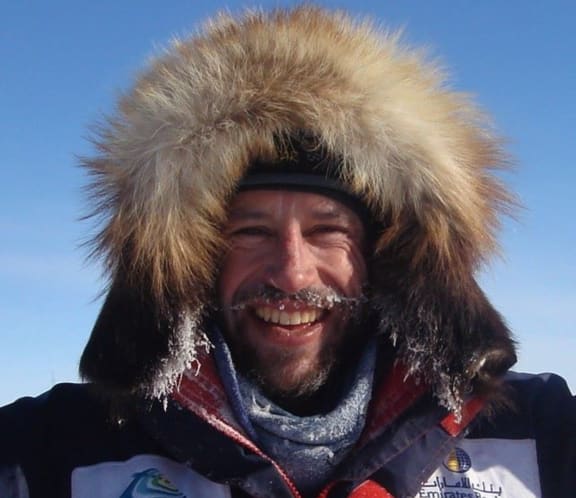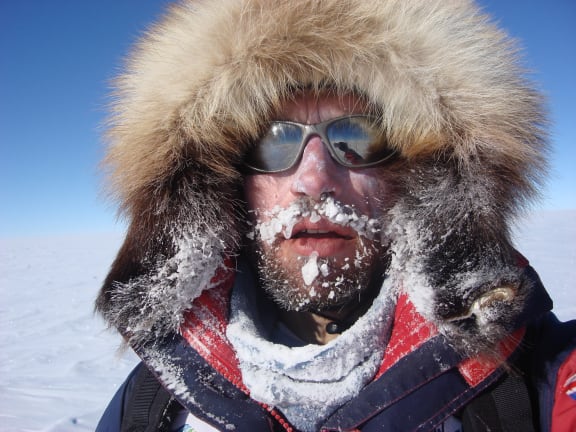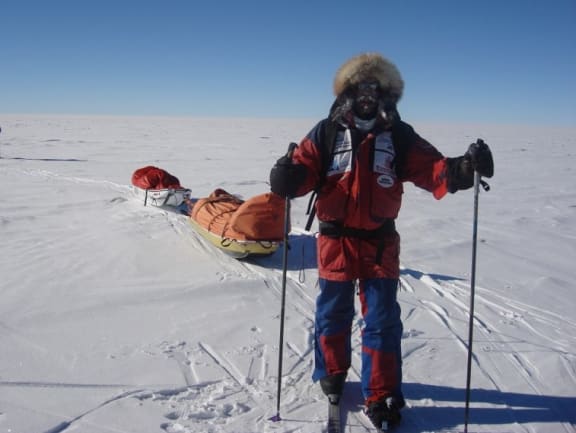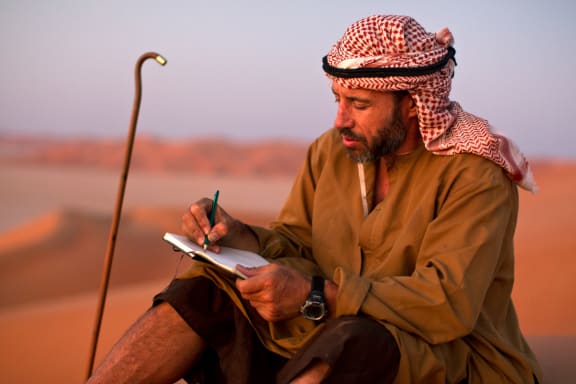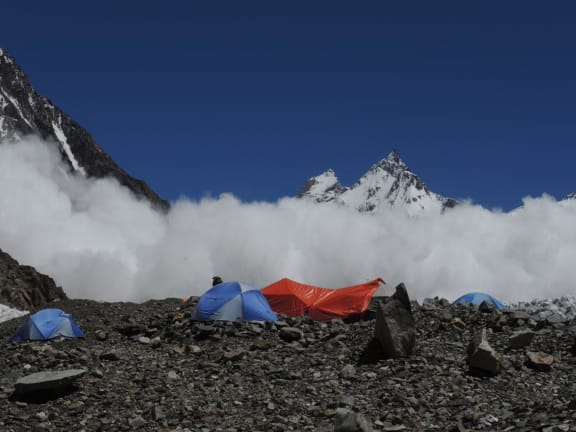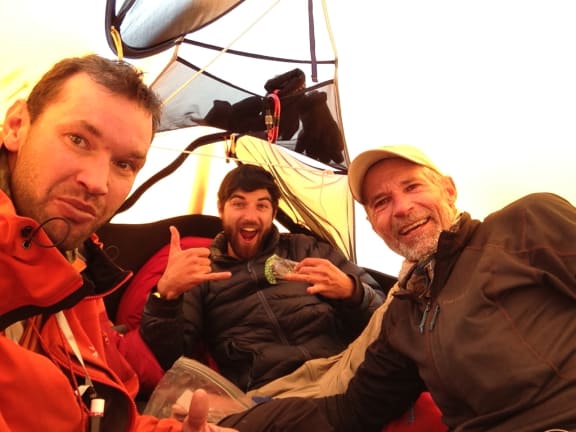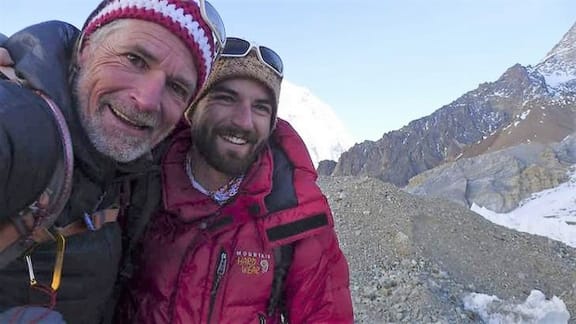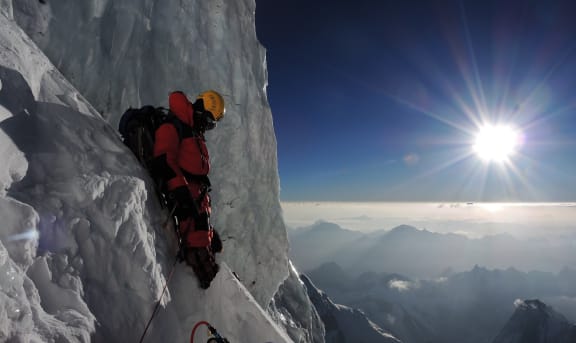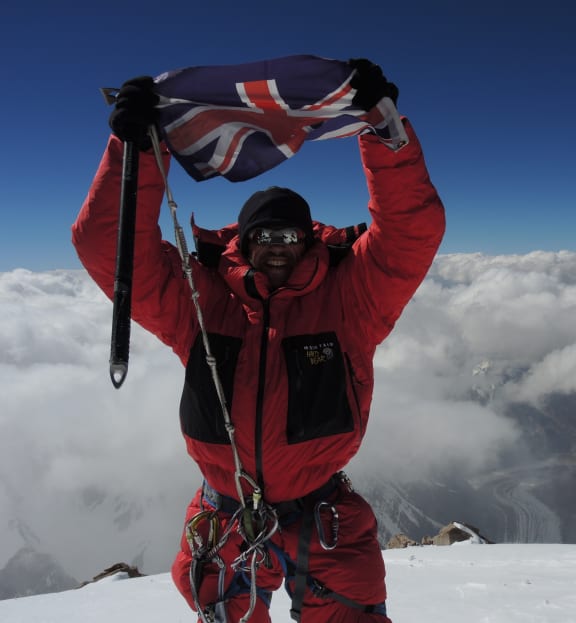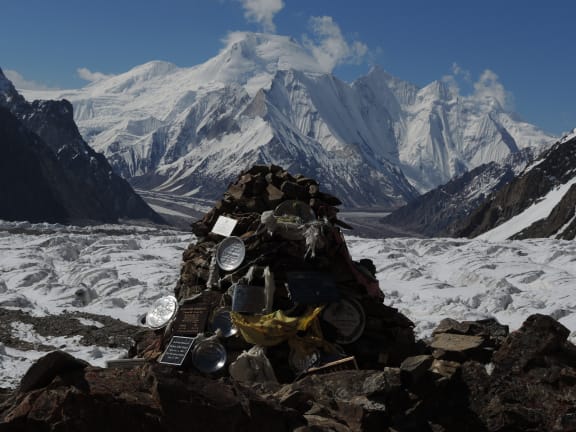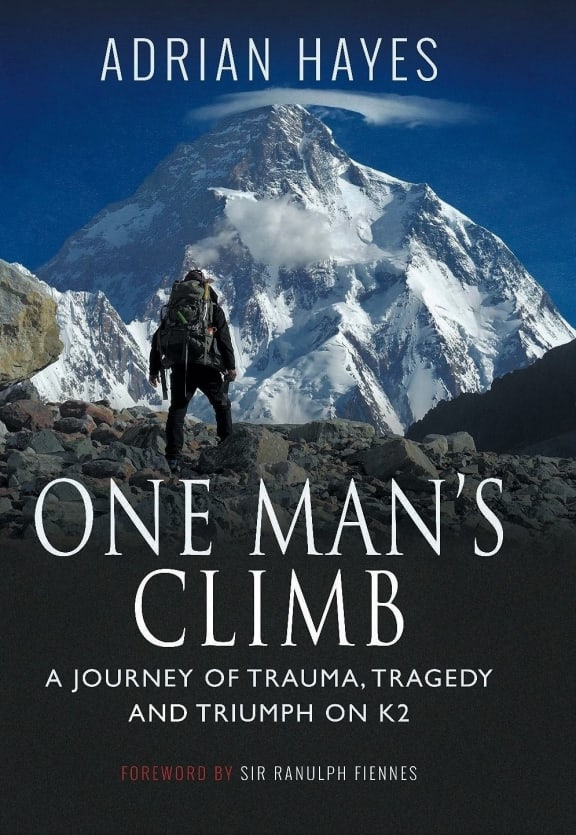The number of people who die trying to reach the summit of K2 is one of the highest of any mountains.
When British adventurer Adrian Hayes made the summit, just over 330 people made it to the top, and 83 of those died – about one in four.
So why would anyone want to climb it?
“In mountaineering terms, it’s the gold medal, it’s the crown jewels, the ultimate achievement. To climb Everest you’ve got to be focused, determined, you’ve got to be a mountaineer, but to climb K2 you’ve got to be on the whole top of your game, it’s chalk and cheese, a whole different ballgame.”
Hayes says with any mountain, if you make it to the top you’ve got a higher chance of falling victim to it on the way down.
“I’ve been climbing mountains, and really doing all sports since I was about sixteen years of age. It’s just that the adventures become longer, more bolder, more riskier. It’s a paradox that when you achieve big goals you’re looking for the next goal because that’s human nature.”
Hayes has climbed the world's highest peaks, walked to the North and South Poles and traversed Greenland by kite-ski.
K2 was something he had thought about for a number of years.
“High risk, high reward is one thing, you can put that in any walk of life, but high risk, low reward, that was the big thing that put me off. Yes it was risky, but most years nobody ever got up.”
What changed was a crisis in his personal life.
“My way has always been to escape, to get into a massive project that was very, very risky but at that stage it was the only way that I could overcome the loss of seeing my kids.
“When I look back, rather than the ‘everything happens for a reason’, I love the quote ‘things happen and it’s up to us to find the reason’ and that reason sometimes will take a week, month, a year, five years. I can look back on it now and think that it’s almost meant to happen, in a sort of strange way.”
It’s brutal training, he says, you’re going through a rigorous regime and you’ve got to put in the effort of a double marathon plus set up camp and cook food on top of it.
“It’s totally blinkered mindset, you can’t afford to be distracted.”
The cost of distraction is someone’s life, he says.
In 2013, the year of his first attempt of K2, the Taliban murdered eleven climbers at Nanga Parbat basecamp, just 188km away from where he was. The massacre caused a shock in the climbing community.
“In mountaineering, death is part-and-parcel of the sport, it is the most dangerous sport of any sport in the world - base jumping according to some risk-measurements is 26 times safer than high altitude mountaineering.
“So you accept it as part-and-parcel of the sport but being murdered by the Taliban was not what was expected and it caused a big shock in the climbing community, every trekking agency pulled their trekkers out, everyone went home."
In the high altitudes of Pakistan however, not one of the climbers turned back.
“We thought the risks you face on the mountains are far higher than the risks of another Taliban attack, it’s a less emotional response to risk than most people would have in the world.”
On his first attempt of K2, there were seven teams, 26 people in total, at basecamp.
It was here he got to know New Zealand citizens Marty and Denali Schmidt.
With bad weather conditions his team decided to make their way back down and return again in a weeks’ time, but the Marty and Denali continued ahead.
“The weather, it was sunny, it was great weather that morning finally but they were very confident, they’d climbed another nearby mountain before and perhaps this is where confidence and self-belief gets the better – and that’s my own explanation, they thought they were invincible and perhaps that was the decision that made them go up and the rest of us go down.”
Sherpas, on arriving at the camp, reported an avalanche, the pair didn’t make it back.
Hayes mourned the loss of Marty and Denali and came back exhausted. He fell ill, had food poisoning and felt as though he had failed. He sunk into depression at some stage, it was a very difficult time.
Sometimes Hayes thinks about how ridiculous the sport is.
“You become blinded by summit fever, but no mountain is worth risking your life for. The mountains will always be there, the trick is to make sure you are too. You’ve got to be very careful.”
When Hayes decided to go back and try again, it was a total change of mindset.
“The training stepped up 15x, it was the fittest I’ve been since I was probably 22 years of age.”
It’s a six-day push to the summit.
During the climb, the party faced a decision – do they carry on or retreat?
They’d come across a 150-metre ice wall which was overhanging - the same wall that collapsed in 2008, killing eight climbers.
“We were stuck, it was technical ice, it was cold, snow drift. A few people were wondering whether it was worth coming back down and trying again the next day. I never felt that myself but you realise that whatever you read in books beforehand, you cannot describe what it’s actually like with a near-vertical ice wall looking over you.
“It’s just a matter of mind over matter, putting up with the pain and the cold and the discomfort and just pushing on. This is it, this is the final race, the world cup final of the thing you have prepared for for many years.”
What does it feel like when you’ve reached the summit?
It’s very much job done, well done, there’s no sense of elation, just a deep sense of satisfaction, says Hayes.
“It’s hard to come back to the so-called ‘real world’, very, very hard to come back to all this clutter and information overload with WhatsApp and texting and Snapchat, Facebook when you’re just devoid of it when you’re on these expeditions. It’s like a decompression from deep dive.
“I think K2 was perhaps the biggest learning experience I’ve had of all of them and I think in the years since, going into writing this book, which is way more than just writing a book about a mountain, it became a cathartic experience writing it from the intense experiences climbing these mountains.”
One of the great things about climbing a mountain is looking down at the world below and realising it doesn't really matter, he says.
Adrian Hayes is in New Zealand to talk about his book 'One Man's Climb - A Journey of Trauma, Tragedy and Triumph on K2', which focuses on his two attempts to climb the world's second-highest peak.
He'll be speaking in Christchurch on Thursday April 4 and in Wellington on Friday April 5th.
